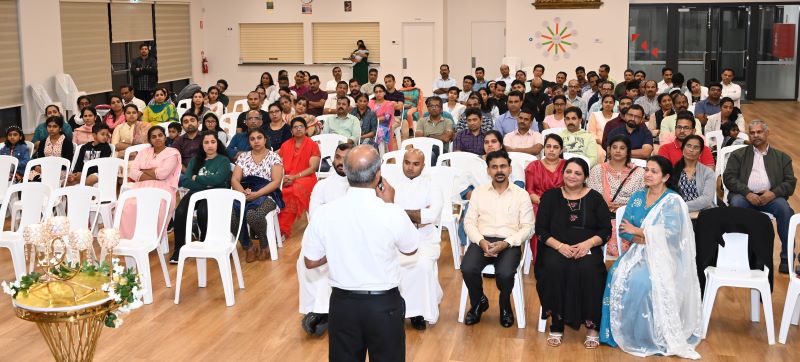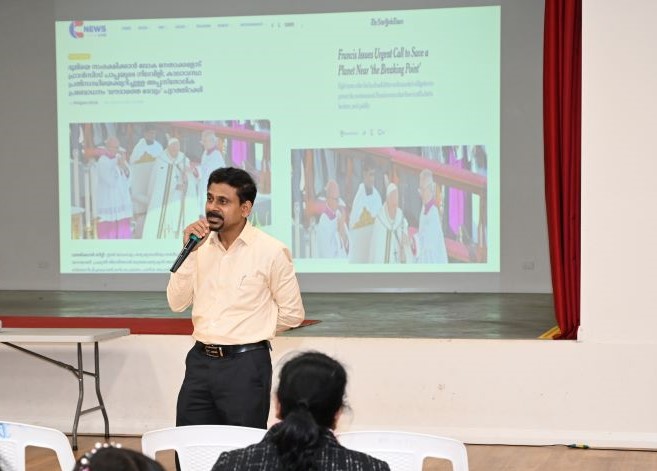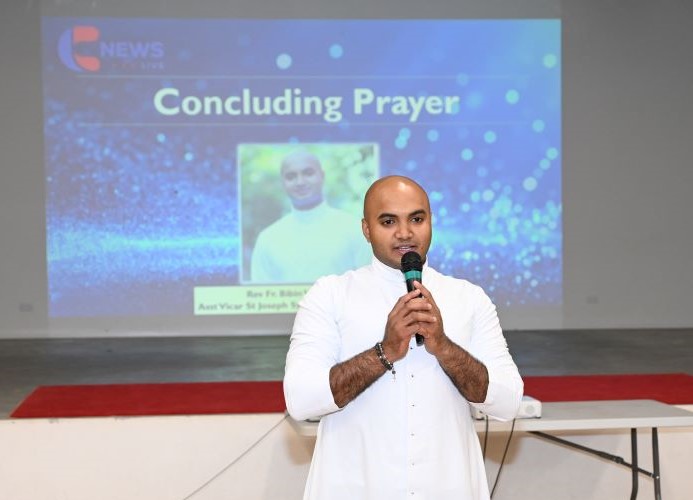Perth- In a thought-provoking seminar held in Perth, the critical role of media in safeguarding culture and values in the digital age took center stage.
Tthe seminar underscored the pressing need for responsible and ethical media usage in the digital age, emphasizing its profound impact on culture, values, and society. The event's participants and speakers alike called for a collective effort to ensure that media serves as a force for good, preserving the integrity of culture and values in today's interconnected world.

The event, which drew over 130 participants, was organised by CNewsLive and was held at the St. Joseph Syro Malabar Parish Hall.
During the inaugural session, Fr. Sinol Mathew VC underscored the significance of media responsibility, emphasizing that media, especially social media, should remain steadfast in upholding human laws, morality, values, and the correction of societal wrongs while promoting love for one's fellow humans.

Fr. Sinol Mathew further reinforced this notion, advocating for noble objectives behind every social media post, with the primary aim being the betterment of society and the encouragement of others, rather than seeking personal glory. He stressed that every online interaction should contribute to the growth of both the church and society.
One prevalent concern addressed at the seminar was the challenge faced by parents and children in distinguishing between right and wrong messages on social media. The uncontrolled exposure of children to television and digital media, it was noted, can inadvertently introduce harmful content.

Fr. Sinol Mathew VC drew parallels to the role of prophets in history, who served as conduits for divine communication to the people. This highlights the powerful influence of media and underscores the responsibility associated with it.
Fr. Anish James VC, Parish Priest of St. Joseph's Syro Malabar in Perth, who presided over the seminar, stressed that the effective use of media is imperative in the present era.
Lizy K Fernandus, the Chief Executive Officer of CNewsLive, delivered a compelling keynote address. She explained that the inception of the online portal, CNewsLive, stemmed from the growing need to counteract the proliferation of negative propaganda against priests and the church. The mission, she asserted, is to expose detrimental trends in the media while advocating for faith and spreading messages of goodness and love worldwide.

The seminar also featured a talk by CNews Live Advisory Editor Prakash Joseph, who spoke on the implications of "Media Awareness and Christian Life."

The prayer was led by Fr. Bibin Velamparambil, and the vote of thanks was offered by Mathew Mathai, the Australia Coordinator for CNews Live. Jolly Raju served as the MC, and international technical team member Raison Jose, Lisa Mathew, Saji Varghese, Bino Polashssery, Abraham Chacko, Shaju John, and Raju Alexander, contributed to the event's success.